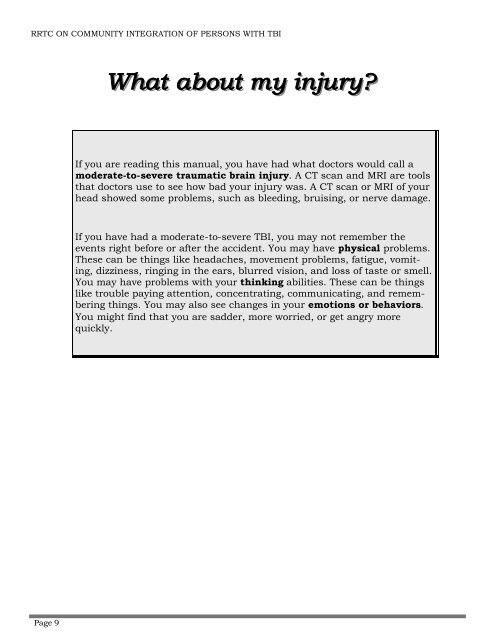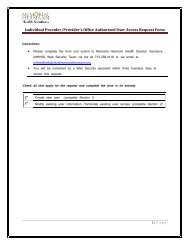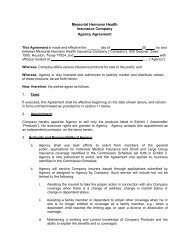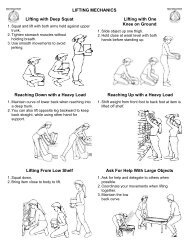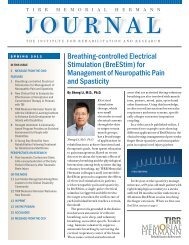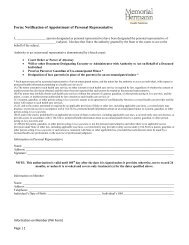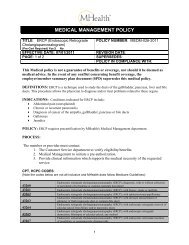I Have a What? A Guide for Coping with Moderate-to-Severe TBI
I Have a What? A Guide for Coping with Moderate-to-Severe TBI
I Have a What? A Guide for Coping with Moderate-to-Severe TBI
- No tags were found...
You also want an ePaper? Increase the reach of your titles
YUMPU automatically turns print PDFs into web optimized ePapers that Google loves.
RRTC ON COMMUNITY INTEGRATION OF PERSONS WITH <strong>TBI</strong>If you are reading this manual, you have had what doc<strong>to</strong>rs would call amoderate-<strong>to</strong>-severe traumatic brain injury. A CT scan and MRI are <strong>to</strong>olsthat doc<strong>to</strong>rs use <strong>to</strong> see how bad your injury was. A CT scan or MRI of yourhead showed some problems, such as bleeding, bruising, or nerve damage.If you have had a moderate-<strong>to</strong>-severe <strong>TBI</strong>, you may not remember theevents right be<strong>for</strong>e or after the accident. You may have physical problems.These can be things like headaches, movement problems, fatigue, vomiting,dizziness, ringing in the ears, blurred vision, and loss of taste or smell.You may have problems <strong>with</strong> your thinking abilities. These can be thingslike trouble paying attention, concentrating, communicating, and rememberingthings. You may also see changes in your emotions or behaviors.You might find that you are sadder, more worried, or get angry morequickly.Page 9


